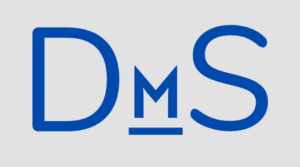The Power of Trust

Trust is a critical factor in the success of a high performance idea system. Employees need to trust that their ideas will be properly considered and implemented, and organizations need to trust that employees’ ideas are carefully thought-through and in the best interest of the company. But when an improvement idea has the potential to eliminate an employee’s job, a totally different kind of trust is involved. Last week Alan and I encountered such an idea while in Brazil working at Brasilata, a steel can maker that is recognized as being one of the most innovative companies in that country.
The idea in question came from Maria Scorro (machine operator) and Marceima Francisca (fork lift operator). It involved putting two automated presses that were in different areas side-by-side so they could be run by a single operator. The move eliminated the need for three operator jobs – one from each shift. Why would Maria and Marceima offer an idea that potentially eliminated her job and those of two colleagues? Clearly she trusted that Brasilata’s leadership would not use it as an opportunity to fire people. Her level of trust was even more impressive when considering the full context. The Brazilian market for the company’s products had hit a slump and Brasilata’s leadership had initiated a hiring freeze. Despite this action, Maria and Marceima had faith that neither their jobs nor those of any work friends were put at risk by their idea.
While rare in most organizations, this type of trust is common in organizations with high performance idea systems. Sometimes such trust stems from some form of official no-layoffs policy, but more often it is due to years of consistent company actions. For example, when Scania, the Swedish truck manufacturer was hit by the 2008 global recession and its sales volume suddenly dropped precipitously, rather than shutting down production lines and furloughing workers like most of its competitors did, it used the slack to increase employee training and make major plant improvements.
The type of employment guarantee behavior exercised by Scania and Brasilata is the norm in idea-driven organization. A common question we get asked is ‘how can such organizations afford to be so benevolent?’ While such practices may be seen as company sacrifices for the good of employees, they lead to much better bottom-line performance, particularly in the long run. For Scania, front-line ideas increase the company’s productivity by 10-15 percent every year. Without job security, these ideas would largely dry up. In Brasilata’s case, its 1000 employees offer approximately 150,000 improvement ideas annually, 93 percent of which are implemented. As a result, despite being in a very mature market, seventy percent of Brasilata’s sales come from products that are protected by patents or new within the last five years. In addition to all of those ideas making the company more productive, they help with innovative products that provide a level of protection from competitors in tough economic times. Last year, the company was the only one in its industry to show a (although much more modest that usual) profit.
So ask yourself this question: If one of your employees has an idea that will eliminate her job, would she have enough courage and trust to step forward with it?
Join my LinkedIn network to be notified of new blog posts.
